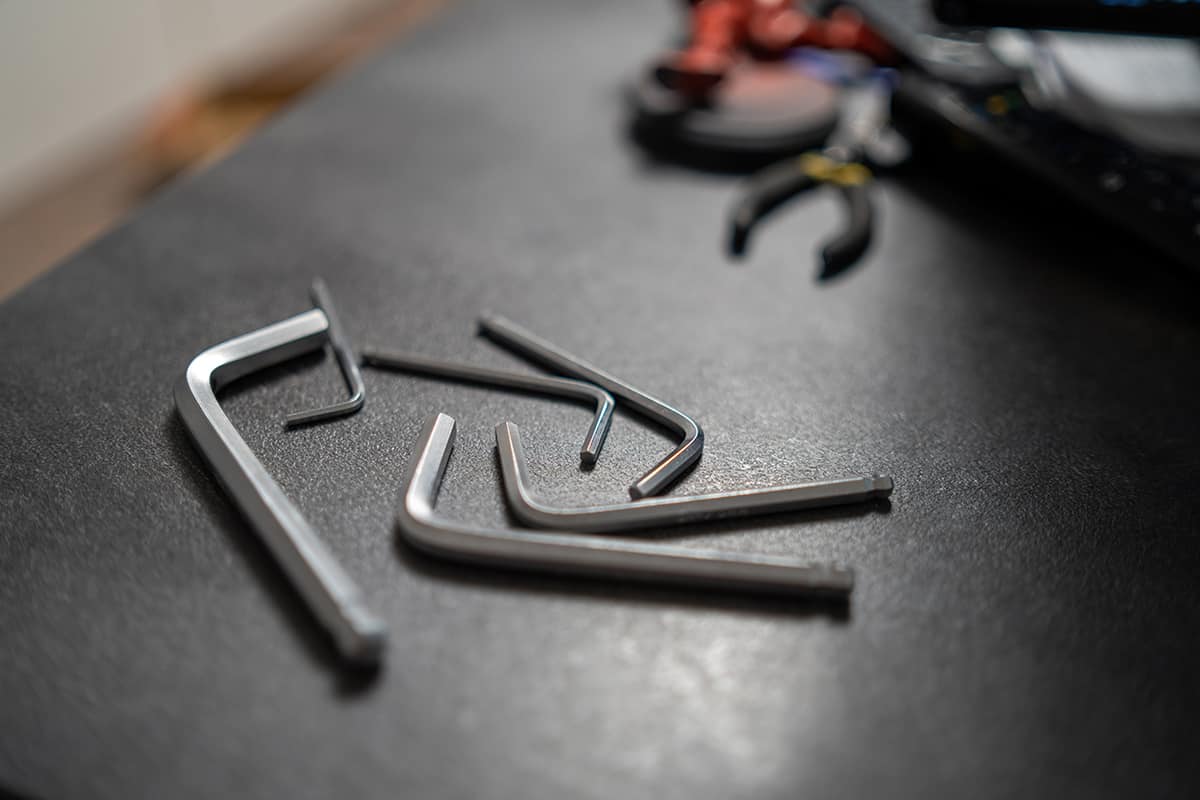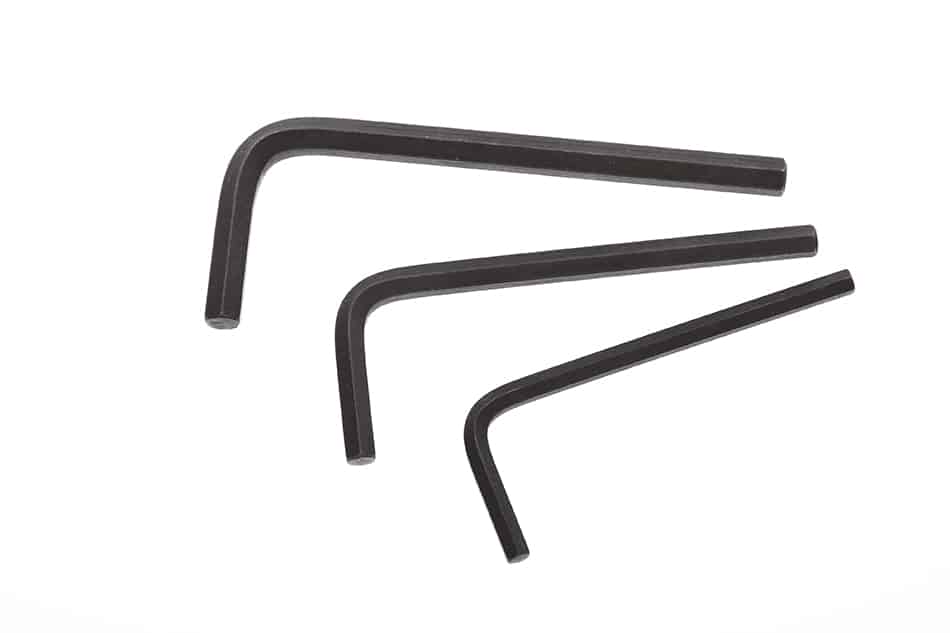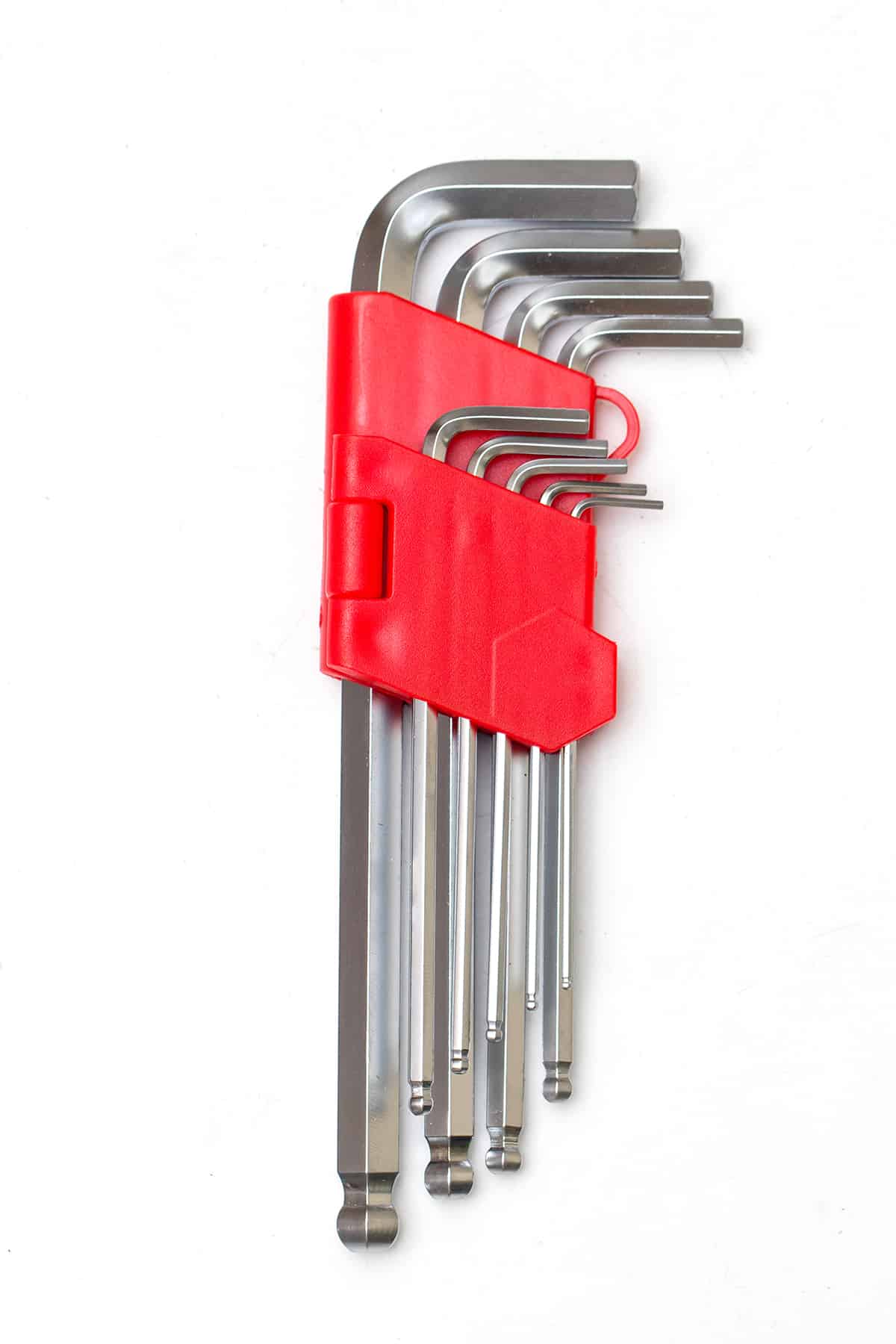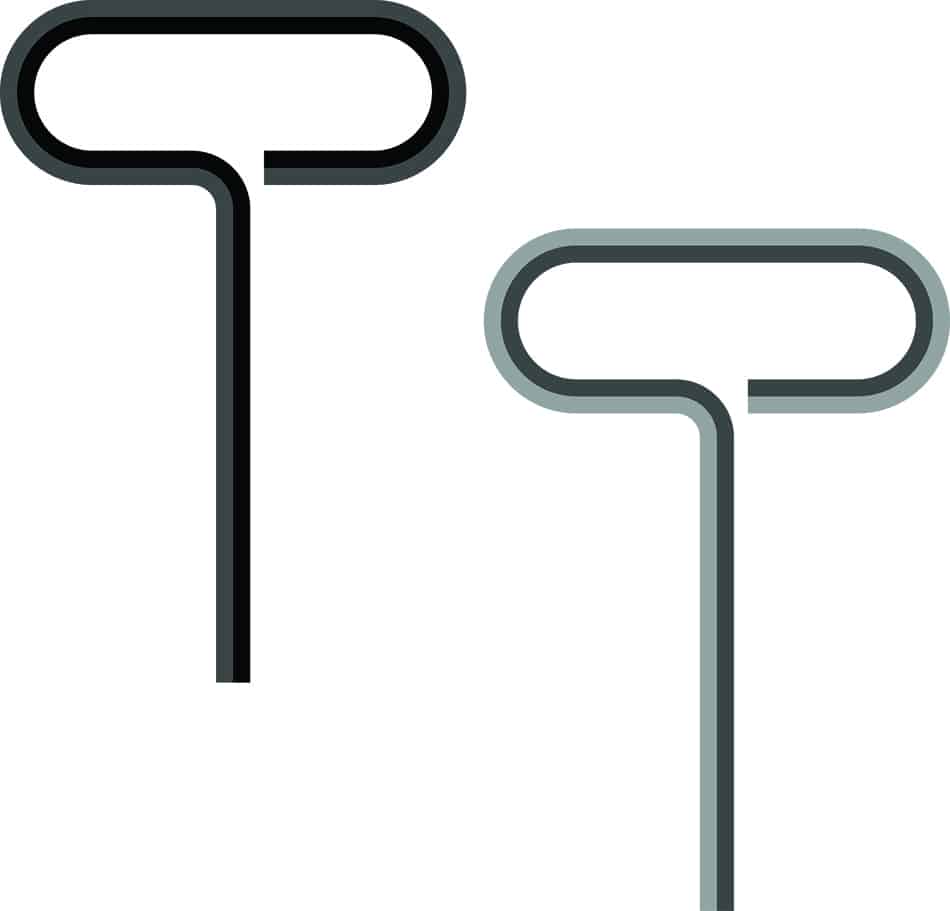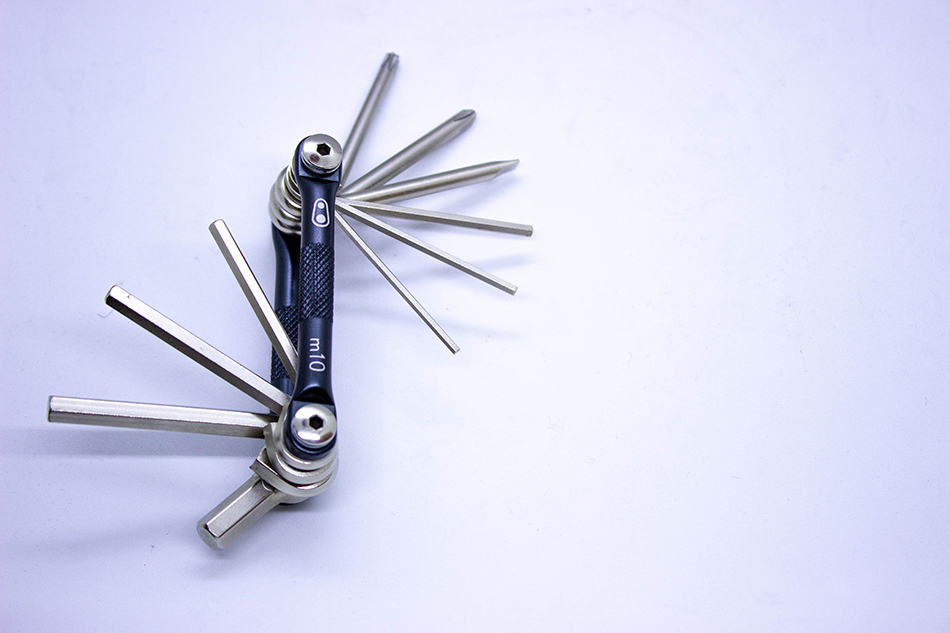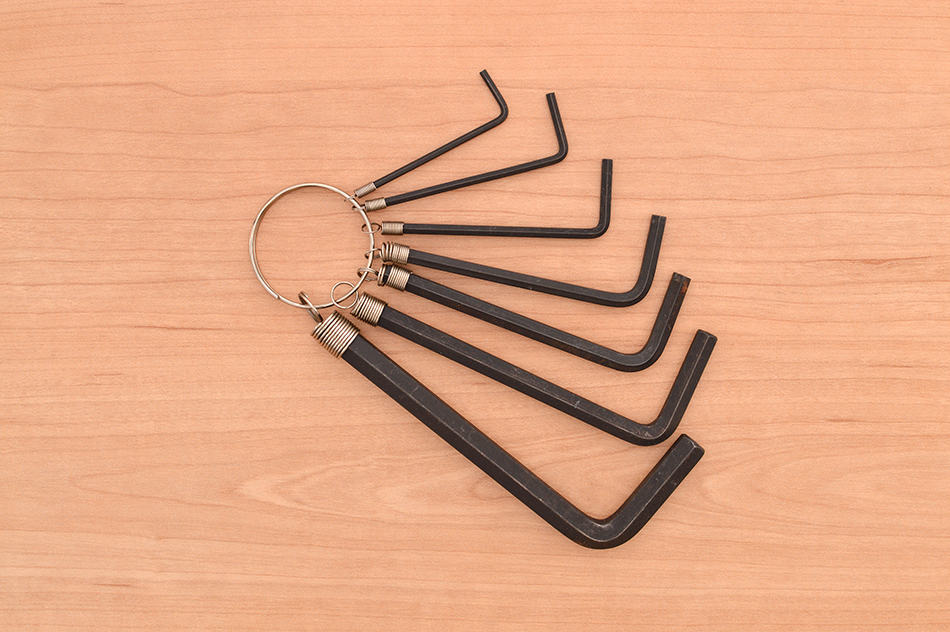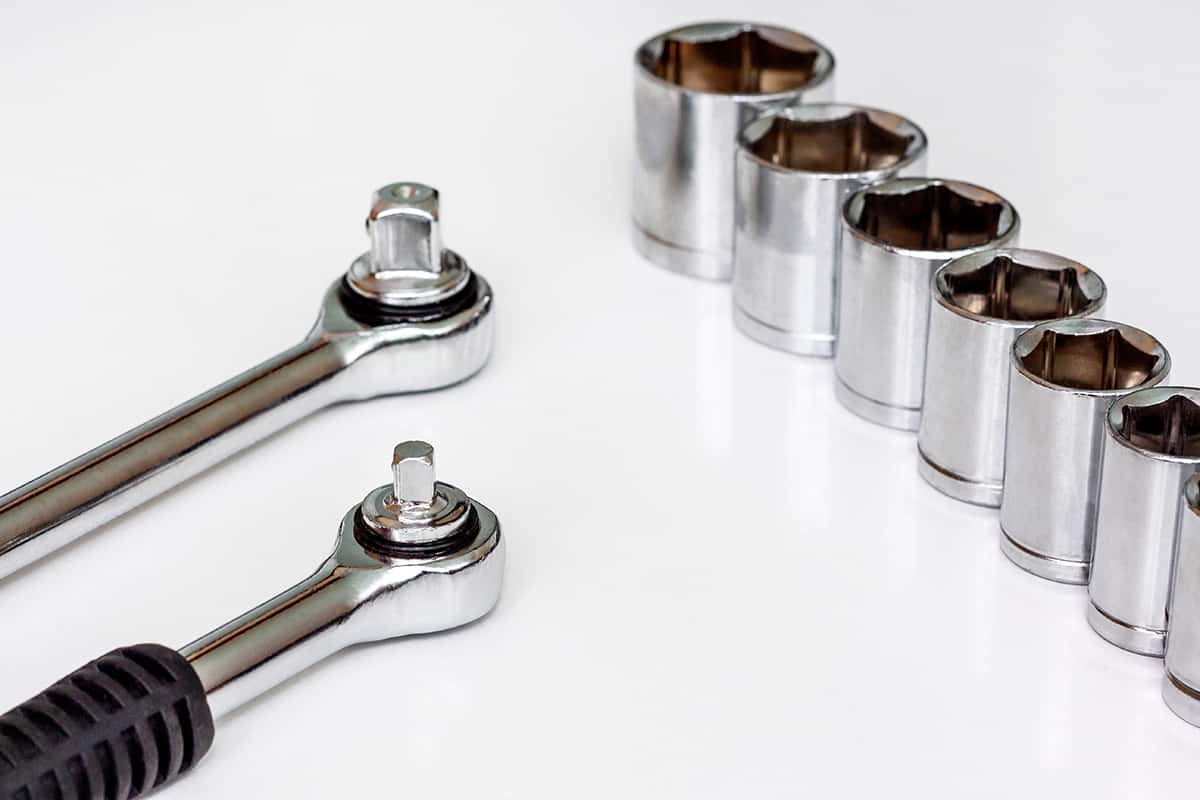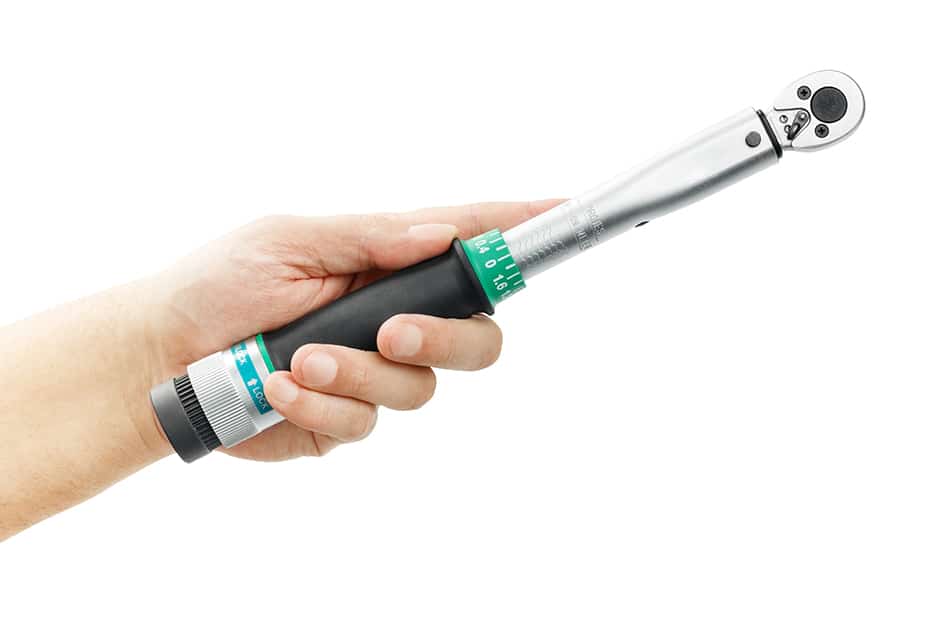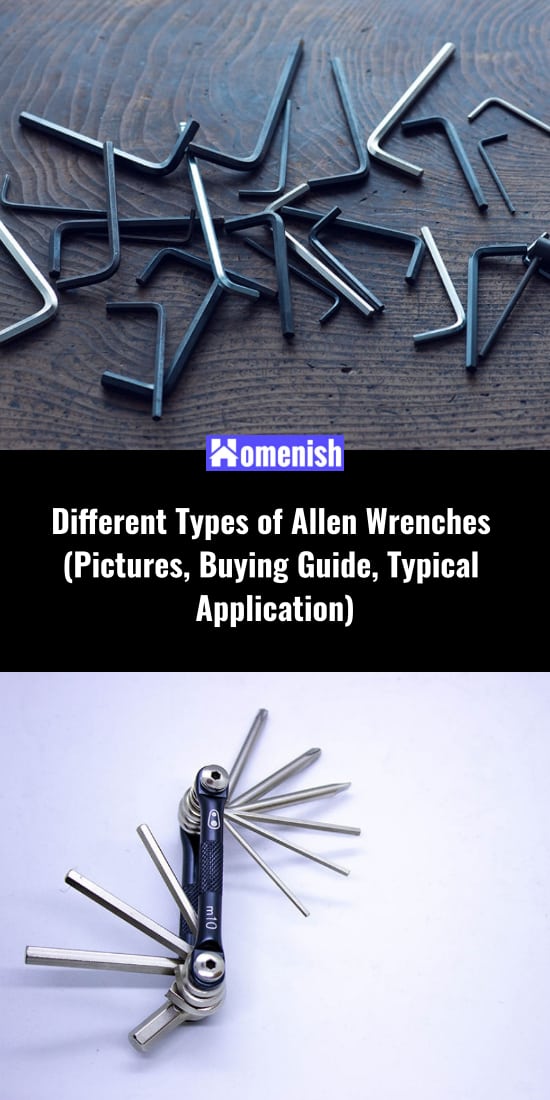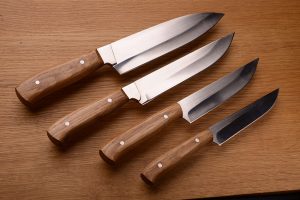Do you need an Allen wrench or a hex wrench for that bolt? Or maybe it takes a hex key?
Don’t get confused; all of these terms describe the same thing. Allen was simply the last name of the inventor of this type of wrench, while the “hex” part describes its shape.
But while these names all describe the same tool, there is a variety in how you can buy this tool. Let’s talk about the range of Allen wrenches available and what you would use each kind for.
Can You Use Regular Wrenches on an Allen Bolt?
No, you can’t use a regular wrench on an Allen bolt. What makes something an Allen setting is the depressed shape in the head of the screw or bolt.
The outside head of the bolt is round, so a wrench can’t grip it. You need an Allen key to insert into the depression and apply force along the interior walls. In this way, an Allen wrench is more like a screwdriver than a wrench.
Types of Allen Wrenches
These different styles provide you with more torque, better accessibility, or a more comfortable grip, all depending on your task. Take a look through these designs to see what you need, then read the rest of the buying guide below to see what features you might want to look for.
L-Style
This is the most basic form of Allen wrench. Using the longer side allows you to reach down to where the bolt or screw head is, while using the shorter and gripping the longer gives you more torque to turn a screw or bolt.
You’ll most likely want to buy a set of these to keep in your toolbox. They come in Standard and Metric sizes, so get a set of each. You’ll use them for a range of household or work tasks when dealing with machinery or outdoor equipment.
Ball Hex
T-Handle
Rather than having one short-side handle only, this design includes two. You can use your fingers and two hands to turn a screw. If you need more torque on one side, some T-handles will slide one way or the other to become more of an L-shape.
You’ll see these used a lot in motorsports, where the shape helps technicians remove and change parts more quickly.
P-Handle
The nice thing about these hex keys is that they have a more comfortable grip. You don’t always want to be pushing on solid steel with your palm or fingers. This bit of plastic or rubber gives you some cushion. It’s also good to use in greasy or wet areas, where the slicker metal might slide right out of your hand.
Folding Hex
A compact set of hex wrenches, this version features some of the most common small sizes in a pocket-size utility case. If you use these sizes of hex keys frequently, either for riding a motorcycle or bike or around your workplace, it might be worth it to get this type of set to keep with you rather than lugging your full toolkit around.
Key Ring
If you don’t need to carry a full set with you but want to keep one or two sizes on hand, you can clip these to your key ring. They’ll give you more torque than you might think because you can slip another Allen wrench between the keyhole and make an impromptu T-handle.
Ratcheting Hex
If you need more power behind your turns, get an Allen ratchet set. You won’t need to wear out your hand or reposition the tool. You could also use the bits in a power drill to quickly tighten and loosen Allen bolts.
Torque Wrench
Similar to the ratchet set are bits that fit onto a torque wrench. If you’re working as a professional or hobbyist mechanic in the machining or automotive industry, you might want a set of these.
Allen Screwdriver
If you don’t need as much torque but want to increase the speed and ease of working with hex bolts, get a set of Allen screwdriver bits. The long bits will allow you to work on deep-set or hard-to-reach screws, while the screwdriver handle provides a narrow profile and comfortable grip.
Sizes of Allen Wrenches
Like crescent wrenches and other sockets, Hex keys come in Standard/English measurements and Metric sizes. Depending on where a piece of equipment was machined, it will include bolts/screws of one or the other variety.
You need a set of each Allen wrench because you don’t want to try to substitute one measurement type for the other. The sizes may be similar, and it seems like using a certain size of English wrench in a Metric bolt, or vice versa, would work; doing so will strip the bolt.
The Standard wrenches are measured in part of an inch. You might seem something like 5/32 or ¼. This is the size of the inset. Metric wrenches are measured in millimeters.
What to Look for When Buying Allen Wrenches
So, what kind of Allen wrench do you need? Now that you know the different types, here are some features to look for and qualities to consider.
Handle Shape
Think about how you’re going to use your Allen wrenches most often. If you’re looking at the different types, you probably have an idea of what you need it for already. Which handle shape will help you reach what you need to? Which will give you the torque you need? Which will be most comfortable to use without sacrificing the other qualities?
L-, T-, and P-handles all have their strengths. L-shaped Allen wrenches will be the most compact because of how they fit together. They’re also generally less expensive to buy as a full set.
Wrench Shape
In L-shaped wrenches, the only variation you get is having a squared end or ball end. The ball end helps to grip better in stripped bolts but doesn’t provide as much torque.
Of course, you can drift away from the L-shape and get the straight-style hex wrenches in the form of a key ring wrench or Allen screwdrivers. Again, you don’t get as much torque with these because you don’t have a long, perpendicular handle to grip, but they may help you get into narrower spaces better.
Length
When it comes to L-shape wrenches, the length of either end gives you more torque when using the opposite end. Some shorter ends are longer than others, giving you more torque when using the long end.
You also want to consider length, though, when you’re trying to get into a narrow space. Sometimes, you need your hand to be above other components, so make sure the tool you buy is long enough to get to the bolt without your hand being in the way of some other part. You can’t use an extension for Allen wrenches except in the case of sockets, where you can insert an extension bar on the ratchet, then attach the socket.
Compactness
The L-shaped wrenches come in a compact carry case as a full set. But you can get smaller if you go with a hex key ring or folding hex set. A socket set would come in its own case, but a set of screwdriver bits is even smaller.
Toughness
Most tools like this are made from steel. But there are grades of steel and differences in the manufacturing process that make the tools stronger or weaker, harder or more flexible. Buying inferior steel tools will cause breakage, bending, and inexact measurements. Look for a minimum Rockwell Hardness score of C5 to ensure your tools will last.
Surface Area Treatments
While made from steel, your wrench will also probably be coated with another material. If it’s coated in black oxide or zinc, there’s a danger of the tool rusting, and when it rusts, it becomes weaker and more susceptible to breaking. The heads can also lose material and become skinnier – thus not a good fit anymore.
Chrome-plated is better because they reduce friction, minimizing wear and tear on your tool.
How to Use Allen Wrenches
If you don’t need much force to turn a bolt, it’s usually easiest to insert the long end into the bolt and turn with the short end. If the bolt doesn’t move at this positioning, switch the ends. Turning the longer end should give you enough torque to loosen the bolt. Likewise, you can get a bolt started by using the short end, then switch to using the long end to tighten it completely.
If a bolt doesn’t loosen even when you’re holding the longer end, slide another piece of metal tubing over the Allen wrench to use as a breaker bar. Your goal is simply to add more length to the wrench and, thus, more torque. You may also need to use a hammer to hit the long end of the breaker bar and thus loosen the bolt with the added force of the blow.
Always use the proper size wrench for the bolt. Don’t hammer a larger key into a smaller bolt depression. You’ll only damage either the key or the bolt, whichever is made of weaker metal. Using a mismatch size can also strip the tool or the bolt depression.
Typical Applications of Allen Wrenches
What do you use Allen wrenches for? Here’s a breakdown of the 5 most popular uses.
Bikes
By and large, bikes use Allen wrenches for their attachment. In fact, Allen wrenches are popular in anything with moving parts because they’re easier to use than nuts and bolts and don’t come loose like screws can.
If you bike regularly during your commute or as part of your exercise, it’s worth carrying a hex set with you. That way, you can take care of any repairs on the go.
Cars and Motorcycles
T-handle Allen wrenches are the go-to for performing bike and vehicle repair work, though many manufacturers of automobiles are going to more specialized screws, such as the star shape. If you have an older vehicle, though, and plan on doing any repairs yourself, get a good set of T-handle hex keys.
Furnishings
If you’ve ever put together a piece of furniture, you’ve probably used a hex key. It’s generally a courtesy to include a hex wrench in the packaging because they’re so lightweight and compact.
Tools
You might need an Allen wrench to chock up your drill or change the blade on your circular saw. Allen bolts are also used primarily in heavy machinery. If you work construction, landscaping, or manufacturing, there’s a good chance you’ll be reaching for an Allen wrench frequently.
For light work, you can get away with a folding hex set. But if you’re working heavy machinery, you’ll most likely need something more heavy-duty. A socket set is probably your best bet, along with a set of ball hexes.
Electronic Devices
If you want to work on electronic devices, you’ll need a set of small Allen wrenches, probably in Metric sizes. Again, a folding hex set would probably work in most cases, but you can get higher quality if you buy a set of Allen screwdriver tips. These small bolts aren’t usually difficult to turn, so you don’t need to worry about torque. Straight wrenches should do just fine.
Conclusion: What Type of Allen Wrench Fits Your Needs?
The type of hex wrench you choose will depend on how heavy-duty your task is. But even if you don’t plan on using your wrenches on big maintenance projects, we do recommend buying chrome-plated C5 steel tools to ensure they won’t break or bend when you’re using them.
And if you see a set priced too much lower than the others, be wary; they might not be sized properly.
